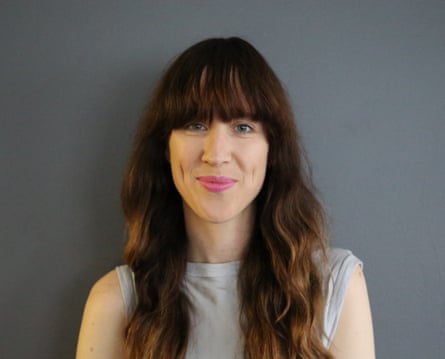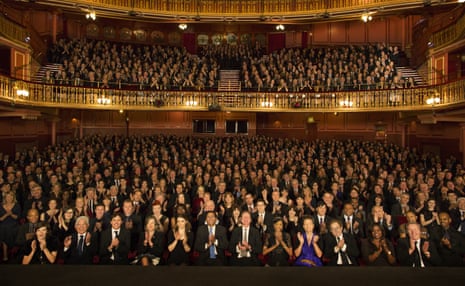In 2015, I made a theatre show, The Talk, about my working class family and their working class sex lives. I interviewed them about their sexual histories, and edited their stories into verbatim scenes that I get audiences to read.
The show is, ostensibly, about sex and family. But as I revisit the material, I realise how much of it is about class: bringing my working class relatives into the middle-class space of the theatre; getting my blood family to meet my chosen family. That visibility, sharing that part of myself, was difficult.
My mum says “youse” instead of “you”. It’s a line that people often stumble over when they read aloud in the show. On tour in the UK, people had no idea what it even meant. “You…..seee?” they would say, their tongues refusing to wrap around this nonsensical usage. They’d look at me and say, “There’s a typo”. I never had the heart to tell them that “youse” is the collective noun for a group of bogans.
A recent article by Javaad Alipoor in this publication described how arts funding in the UK, during the Blair administration, required artists to “consider the social outcomes of their work”. As a result, companies often rushed to stage work with a socio-political theme: shows about the effects of austerity measures on the working class, for example.
But though these companies used them as subject matter, they failed to engage any members of the class they were talking about. “The arts world has turned working-class people into a problem to be solved rather than audience members or artists to be developed,” Alipoor wrote.
There are resonances at home in Australia, where a common myth pervades: that class barriers don’t exist. The hoary old concept of a “fair go for all” limps along, draped over public discourse like an emergency poncho – as though education, health, success and survival aren’t affected by where people start in life.

If my family want entertainment, they are more likely to spend their money on a motorised ride-on esky scooter than a subscription to Sydney Theatre Company. My school friends only ever come to the theatre to see me. Other times, they feel alienated and unsafe in arts institutions, if they can ever afford to go. Some of them say theatre is for people more educated, but mostly they just think it’s boring.
I want to tell them that they’d love it if they went. That it’s their stories on stage, their culture. But most of the time, I’d be lying. Its middle-class stories about middle-class problems. This would bore them.
At the last Australian Theatre Forum last year, I hosted a session about class and representation. I wanted to unpick how we talk about class, and how it interacts with other power structures, including race, gender, and ability. The conversation was sticky and heated, with various flare ups – class is deeply personal, its barriers invisible. Working class artists may not know where to place themselves once they’ve created distance from their upbringing: “Now that I’m shopping at a farmers market in a reversible leopard print coat can I still call myself blue collar?” I never know how to answer. My wage is definitely lower than my high school friends who work the haberdashery desk at Spotlight, and yet I’m not in their crew any more. I’m somewhere in the international community of privileged travelling precariats, lucky enough to pursue my passion yet unstable enough to have trouble sleeping if someone whispers the words “superannuation” anywhere close to bedtime.
“Can I write a play about a story that isn’t mine?” asked one young playwright at ATF. Contemporary performance-makers fumed and thumped their Gorman-clad chests. “No! The answer is no!”. Playwrights retorted “Of course you can, as soon I write a story it isn’t mine any more!” A curator turned to me afterwards, “It’s a question of dramaturgy, representation, isn’t it?”
I wonder how we ensure that people from the working classes can find pathways into the arts. It’s getting increasingly difficult for young people to become artists – to take that leap into the unknown, to get enough support from institutions to continue, to drown out the voice of the career advisor saying “Get a Dip Ed, just to be safe!”
Malicious governmental cuts have ripped funding from places such as PACT and Next Wave, the institutions that previously provided the few open doors to generations of young makers in order to help them mature into career artists, me included. I’m devastated to think of the voices being shut out right now.
Occasionally, I despair. I feel there is no place for the working class in the theatre. I have to constantly remind myself how long it’s going to take us to unpick the cultural clusterfuck of Australian class identities, let alone our artistic identities. But then, I have great optimism for the capacity for change in Australian audiences.

When I’m frustrated, I like to think of the 70s – and not just because I’m into guys with moustaches. I like to ask my theatrical elders for their stories, because it’s within living memory that there was a small yet spectacular revolution on our stages: people started speaking and writing not in received English, but Australian accents.
As a result, the stories got one step closer to feeling like “ours”. And while I’m often furious by how narrow the space is for voices of “difference” – by which I mean anything that isn’t straight and white and male – I’m sure as shit glad that I’m not living 60 years ago, and I’m determined to leave this landscape in better condition than when I found it.
I’m not alone. I’m amazed by the storytellers that have rocked our stages lately: Zoe Coombs-Marr, Sisters Grimm, Adena Jacobs, and Michelle Lee, to name a few. Together, we’re demanding that theatre be relevant, exciting, thrilling and challenging for working classes, for people of colour, for cool kids and massive nerds – anyone who is made to feel like they are part of a minority, just because they haven’t held the cultural megaphone for the past few thousand years.
Of course, despite the work of these awe-inspiring individuals, what we need is seismic shifts to the structures, process, content and form of our theatre. My show is something of a distress signal: “Help! I need more voices like these! I need more people like me!”
We need to keep making each other braver and louder, bringing our weird particularities into the public forum and inviting new weirdos to watch.
- The Talk by Mish Grigor is at Northcote Town Hall from 5 -14 July, before playing at Darwin festival.
